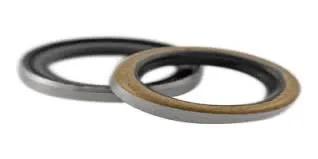8 月 . 07, 2024 14:10 Back to list
Choosing the Right Teflon Oil Seals for Optimal Performance and Longevity in Industrial Applications
The Importance of Teflon Oil Seals in Modern Engineering
Teflon oil seals have become a vital component in various industrial applications due to their unique properties and the advantages they offer. These seals are primarily made from polytetrafluoroethylene (PTFE), a high-performance plastic known for its exceptional chemical resistance, low friction, and high-temperature stability. In this article, we will explore the significance of Teflon oil seals, their advantages, applications, and factors to consider when selecting the right seal for specific engineering needs.
The Importance of Teflon Oil Seals in Modern Engineering
Another key benefit of Teflon oil seals is their low friction properties. The smooth surface of Teflon allows for reduced friction between the seal and the shaft, which minimizes wear and prolongs the life of the seal. This is crucial for applications involving rotational or linear motion, as excessive friction can lead to overheating and premature seal failure. In applications like automotive engines and heavy machinery, employing Teflon oil seals helps to improve performance and reliability, reducing maintenance costs over time.
teflon oil seals

Moreover, Teflon seals can operate effectively across a wide temperature range, often from -250°C to +260°C (-418°F to +500°F). This thermal stability makes them ideal for applications subjected to extreme temperatures, such as in aerospace and automotive industries. In these sectors, components are frequently exposed to heat generated by friction, making Teflon oil seals a preferred choice for maintaining optimal performance and sealing integrity in critical systems.
Applications of Teflon oil seals are widespread. In the automotive industry, they are used in various components, including engines, transmissions, and differential assemblies. The chemical and thermal resistance of Teflon ensures that these seals maintain their performance despite exposure to engine oils, fuels, and other automotive fluids. Similarly, in the food and beverage industry, Teflon seals ensure that equipment remains hygienic and free of contamination by meeting stringent regulatory requirements for materials in contact with food.
When selecting a Teflon oil seal, several factors must be considered to ensure optimal performance. Firstly, the application's operating conditions should be carefully analyzed, including temperature fluctuations, chemical exposure, and pressure levels. It is also important to assess the specific type of Teflon being used, as variations exist (e.g., filled vs. unfilled PTFE), which can impact performance characteristics. Additionally, sealing design plays a crucial role, as factors like groove dimensions and the installation process can influence sealing effectiveness and longevity.
In conclusion, Teflon oil seals are indispensable in modern engineering due to their chemical resistance, low friction, and thermal stability. Their versatility allows them to perform effectively in various industries, from automotive to pharmaceuticals. By understanding the unique properties of Teflon oil seals and carefully considering application requirements, engineers can enhance the reliability and longevity of their systems, ultimately leading to improved operational efficiency and reduced costs. As technology continues to advance, the role of Teflon oil seals in ensuring effective sealing solutions will undoubtedly grow, solidifying their importance in the engineering landscape.